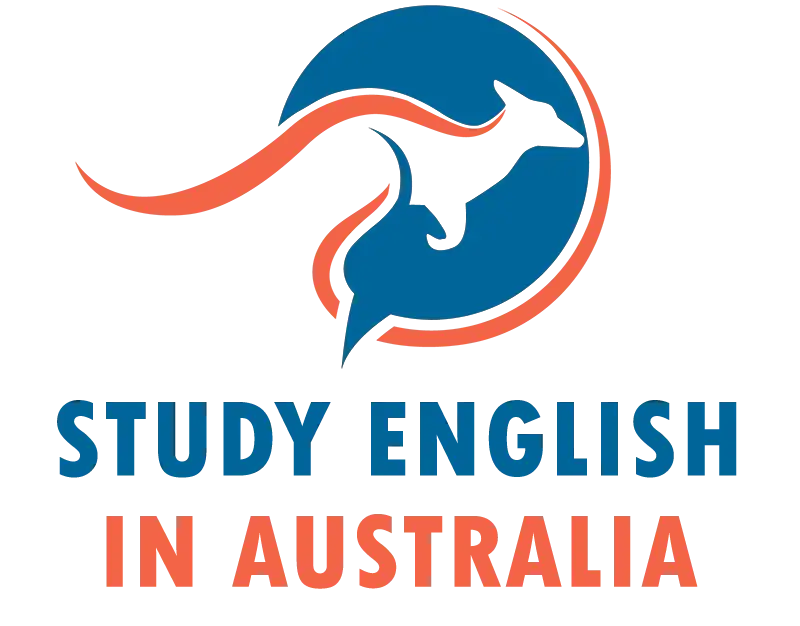Produktions- oder Anlageningenieur (ANZSCO 233513)
Die Einwanderung nach Australien ist für viele Menschen ein Traum, die bessere Chancen und einen hohen Lebensstandard suchen. Mit seiner starken Wirtschaft, seiner vielfältigen Kultur und seinem hervorragenden Gesundheits- und Bildungssystem bietet Australien ein einladendes Umfeld für Einwanderer. Der Einwanderungsprozess kann jedoch komplex sein und erfordert eine sorgfältige Planung und Vorbereitung.
In diesem umfassenden Leitfaden stellen wir detaillierte Informationen zum Einwanderungsprozess nach Australien bereit. Vom ersten Antrag bis zur endgültigen Visumgenehmigung decken wir alle notwendigen Schritte und Anforderungen für eine erfolgreiche Einwanderungsreise ab. Ganz gleich, ob Sie sich für eine Fachkräftemigration, eine Familienpatenschaft oder eine Unternehmensinnovation bewerben, dieser Leitfaden wird Ihnen als Anlaufstelle dienen.
Arten von Visa und Berechtigung
Für Personen, die nach Australien einwandern möchten, stehen verschiedene Arten von Visa zur Verfügung. Die Zulassungskriterien und Anforderungen variieren je nach Visumkategorie. Hier sind einige der gängigsten Visumarten:
1. Einwanderungsvisa für Fachkräfte
Einwanderungsvisa für Fachkräfte richten sich an Personen, die über die in Australien gefragten Fähigkeiten und Qualifikationen verfügen. Diese Visa basieren auf Punkten und erfordern, dass Antragsteller bestimmte Kriterien erfüllen, um berechtigt zu sein. Zu den qualifizierten Migrationsvisa gehören:
2. Familienpatenschaftsvisa
Wenn Sie ein Familienmitglied haben, das australischer Staatsbürger ist oder einen ständigen Wohnsitz in Australien hat, kann dieser Sie möglicherweise für ein Familienpatenschaftsvisum unterstützen. Mit diesen Visa können Sie in Australien leben und arbeiten und schließlich die australische Staatsbürgerschaft beantragen. Einige der Familienpatenschaftsvisa umfassen:
3. Geschäftsinnovations- und Investitionsvisa
Wenn Sie ein Geschäftsinhaber oder Investor sind, der Ihr Unternehmen in Australien gründen oder erweitern möchte, haben Sie möglicherweise Anspruch auf ein Geschäftsinnovations- und Investitionsvisum. Diese Visa sollen Personen mit einem erfolgreichen Geschäftshintergrund und erheblichen Investitionsmitteln anlocken. Zu den Geschäftsinnovations- und Investitionsvisa gehören:
Kompetenter Migrationsprozess
Der Prozess der Fachkräftemigration umfasst mehrere Schritte und Anforderungen, um sicherzustellen, dass Einzelpersonen über die erforderlichen Fähigkeiten und Qualifikationen verfügen, um einen Beitrag zur australischen Wirtschaft zu leisten. Hier sind einige Schlüsselaspekte des qualifizierten Migrationsprozesses:
1. Punktebasiertes System
Die Qualifikations-Migrationsvisa nutzen ein Punktesystem, um die Eignung einer Person zu beurteilen. Die Punktevergabe basiert auf Faktoren wie Alter, Englischkenntnisse, Bildung, Berufserfahrung und anderen relevanten Kriterien. Der SkillSelect Expression of Interest (EOI) ist der erste Schritt im Prozess der Fachkräftemigration, bei dem Bewerber ihre Daten einreichen und angebenihr Interesse an einer Auswanderung nach Australien.
2. Kompetenzbewertung
Die Kompetenzbewertung ist ein wichtiger Teil des Prozesses der Fachkräftemigration, da sie bestimmt, ob die Fähigkeiten und Qualifikationen einer Person den Anforderungen des nominierten Berufs entsprechen. Für verschiedene Berufe gibt es unterschiedliche Beurteilungsbehörden, und jede hat ihre eigenen Anforderungen. In einigen Berufen gibt es möglicherweise auch Pilotprojekte zur Kompetenzbewertung, bei denen es sich um zeitlich befristete Programme zur Bewertung von Fähigkeiten für bestimmte Berufe mit hoher Nachfrage handelt.
3. Nominierung für Bundesstaat/Territorium
Die Nominierung eines Staates oder Territoriums ist eine zusätzliche Voraussetzung für bestimmte Einwanderungsvisa für Fachkräfte. Jeder Staat oder jedes Territorium hat seine eigenen Zulassungskriterien und Anforderungen für die Nominierung. Die Nominierungsübersichtstabelle für Bundesstaaten/Territorien bietet einen umfassenden Überblick über die Nominierungsanforderungen für jeden Bundesstaat und jedes Territorium.
Familienpatenschaftsprozess
Familienpatenschaftsvisa ermöglichen Einzelpersonen den Nachzug zu ihren Familienmitgliedern, die australische Staatsbürger oder Personen mit ständigem Wohnsitz in Australien sind. Der Prozess beinhaltet die Erfüllung spezifischer Anforderungen und den Nachweis einer echten Beziehung. Hier sind einige wichtige Aspekte des Familienpatenschaftsprozesses:
1. Partnervisum
Das Partnervisum ist für Personen gedacht, die in einer echten und dauerhaften Beziehung zu einem australischen Staatsbürger oder einer Person mit ständigem Wohnsitz stehen. Die Anforderungen für australische Staatsbürger und Personen mit ständigem Wohnsitz in Australien können variieren, und der Nachweis einer echten Beziehung ist im Bewerbungsprozess von entscheidender Bedeutung.
2. Elternvisum
Elternvisa sind für Eltern australischer Staatsbürger oder Personen mit ständigem Wohnsitz in Australien verfügbar, die in Australien leben möchten. Es gibt beitragspflichtige und beitragsfreie Optionen, und zur Bestimmung der Anspruchsberechtigung wird der Balance-of-Family-Test herangezogen.
3. Kindervisum
Kindervisa gelten für unterhaltsberechtigte Kinder australischer Staatsbürger oder Personen mit ständigem Wohnsitz in Australien. Es stehen verschiedene Optionen zur Verfügung, darunter Visa für unterhaltsberechtigte Kinder, verwaiste Verwandte und adoptierte Kinder. Auch die elterliche Verantwortung und das Sorgerecht werden berücksichtigt.
Geschäftsinnovations- und Investitionsprozess
Die Geschäftsinnovations- und Investitionsvisa sind darauf ausgelegt, Personen mit einem erfolgreichen Geschäftshintergrund und umfangreichen Investitionsmitteln anzulocken. Hier sind einige Schlüsselaspekte des Geschäftsinnovations- und Investitionsprozesses:
1. Visum für Geschäftsinnovation
Das Geschäftsinnovationsvisum richtet sich an Personen, die ein neues oder bestehendes Unternehmen in Australien besitzen und leiten oder in einem australischen Bundesstaat oder Territorium investieren möchten. Zu den Zulassungskriterien zählen unter anderem Unternehmenseigentum, Umsatz und Nettovermögen. Der Business Innovation Points Test dient zur Beurteilung der Eignung einer Person.
2. Geschäftsinvestitionsvisum
Die Geschäftsinvestitionsvisa, wie das Significant Investor Visa und das Premium Investor Visa, richten sich an Personen, die eine bedeutende Investition in Australien tätigen möchten. Die Investitionsvoraussetzungen und -pflichten variieren je nach Visumstyp.
Staats-/gebietsspezifische Anforderungen
Jeder Staat und jedes Territorium in Australien hat seine eigenen spezifischen Anforderungen und Kriterien für die Einwanderung. Hier sind die spezifischen Anforderungen für jeden Staat und jedes Territorium:
1. Australisches Hauptstadtterritorium (ACT)
Das Australian Capital Territory (ACT) verfügt über ein eigenes Nominierungsprogramm für qualifizierte Migration. Die Anforderungen und Zulassungskriterien finden Sie auf der offiziellen Website der ACT-Regierung.
2. New South Wales (NSW)
New South Wales (NSW) bietet im Rahmen seines Programms „Skilled Nominated Visa (Subclass 190)“ eine Nominierung für die Einwanderung von Fachkräften an. Die spezifischen Anforderungen und Kriterien finden Sie auf der offiziellen Website der Regierung von New South Wales.
3. Northern Territory (NT)
Das Northern Territory (NT) bietet im Rahmen seines Programms „Skilled Work Regional Visa (Subclass 491)“ eine Nominierung für die Einwanderung von Fachkräften an. Die spezifischen Anforderungen und Kriterien finden Sie auf der offiziellen Website der NT-Regierung.
4. Queensland (QLD)
Queensland (QLD) bietet über seine Programme „Skilled Nominated Visa“ (Unterklasse 190) und „Skilled Work Regional Visa“ (Unterklasse 491) Nominierungen für die Migration von Fachkräften an. Die spezifischen Anforderungen und Kriterien finden Sie auf der offiziellen Website der Regierung von Queensland.
5. Südaustralien (SA)
South Australia (SA) bietet über seine Programme „Skilled Nominated Visa“ (Unterklasse 190) und „Skilled Work Regional Visa“ (Unterklasse 491) Nominierungen für die Einwanderung von Fachkräften an. Die spezifischen Anforderungen und Kriterien finden Sie auf der offiziellen Website der südafrikanischen Regierung.
6. Tasmanien (TAS)
Tasmanien (TAS) bietet über seine Programme „Skilled Nominated Visa“ (Unterklasse 190) und „Skilled Work Regional Visa“ (Unterklasse 491) Nominierungen für die Einwanderung von Fachkräften an. Die spezifischen Anforderungen und Kriterien finden Sie bei der offiziellen TAS-RegierungWebsite.
7. Victoria (VIC)
Victoria (VIC) bietet über seine Programme „Skilled Nominated Visa“ (Subclass 190) und „Skilled Work Regional Visa“ (Subclass 491) Nominierungen für die Migration von Fachkräften an. Die spezifischen Anforderungen und Kriterien finden Sie auf der offiziellen Website der VIC-Regierung.
8. Westaustralien (WA)
Westaustralien (WA) bietet die Nominierung für die Einwanderung von Fachkräften über seine Programme „Skilled Nominated Visa“ (Subclass 190) und „Skilled Work Regional Visa“ (Subclass 491) an. Die spezifischen Anforderungen und Kriterien finden Sie auf der offiziellen Website der Regierung von Washington.
Schlussfolgerung
Zusammenfassend lässt sich sagen, dass die Einwanderung nach Australien ein gründliches Verständnis der Visumoptionen, Zulassungskriterien und des Antragsverfahrens erfordert. Dieser umfassende Leitfaden bietet detaillierte Informationen zu den verschiedenen Visumkategorien, darunter Fachkräftemigration, Familiensponsoring und Unternehmensinnovation. Wenn Antragsteller die in diesem Leitfaden beschriebenen Schritte befolgen, können sie den Einwanderungsprozess selbstbewusst meistern und ihre Chancen auf einen erfolgreichen Ausgang erhöhen.
Bitte beachten Sie, dass sich die Einwanderungsrichtlinien und -bestimmungen ändern können. Es wird empfohlen, sich für die aktuellsten Informationen an einen registrierten Migrationsagenten oder die offiziellen Regierungswebsites zu wenden.
233513: Production or Plant Engineer
Current Demand / Future Demand
Skills Assessment PilotsN/AMinimum points Last invitation Round 25/05/2023 (Subclass 189):
No invitations were given
Possible Visa Options
| Visa Type | Eligibility | Caveats / Mandatory Assessment | Legislative Instrument | MLTSSL | STSOL | ROL |
|---|---|---|---|---|---|---|
| 189Skilled Independent | LIN 19/051 | |||||
| 190Skilled Nominated | LIN 19/051 | |||||
| 491Skilled Work Regional | LIN 19/051 | |||||
| 491FFamily Sponsored | LIN 19/051 | |||||
| 485Stream: Graduate Work | LIN 19/051 | |||||
| 482TSS: Medium & Short term | LIN 19/048 | |||||
| DAMALabour Agreement | ||||||
| 186ENS: TRT & DE | LIN 19/049 | |||||
| 187RSMS: TRT | LIN 19/047 | |||||
| 494SESR: Employer Sponsored | LIN 19/219 LIN 19/260 | |||||
| 407Training: Enhance Skills | LIN 19/050 |
State/Territory Eligibility Summary Table
- Occupation is IN the State/Territory Skilled Occupation List and MAY be eligible if you meet the specific State/Territory nomination requirements
- Occupation is IN the Skilled List (MLTSSL, STSOL or ROL list) and MAY be eligible if you meet the State/Territory nomination requirements
- Occupation MAY NOT be eligible
- Stream NOT applicable to the visa Subclass
- Migration Program currently CLOSED
State/Territory Eligibility Details
Australian Capital Territory
ACT Critical Skills List
233513: Production or Plant Engineer
| Subclass 190 | Subclass 491 | Nomination places available per month |
|---|---|---|
| 5 or Less |
Last list update: 16 May 2023
General Requirements
Candidates must register their interest in ACT nomination by completing a score-based Canberra Matrix
Candidates may be nominated under four streams:
- Canberra Residents
- Overseas Applicants
- Doctorate Streamlined nomination
- Significant economic benefit
Requirements for Canberra Residents
Candidates applying for Subclass 190 nomination must:
- Have an occupation on the ACT Critical Skills List; or be the primary holder of a 457/482 visa sponsored by an ACT employer for the last 6 months; or be the majority owner of an eligible ACT business claiming Matrix points in the Small Business Owner category.
- Have lived in Canberra for the last 6 months and continue until invitation.
- Have worked in Canberra for at least 26 weeks (overall hourly and/or earnings requirements apply).
- Have ‘Proficient’ or ‘Superior’ English (ANZSCO 351311 Chef, and ANZSCO skill level 3 to 5 are exempt).
Candidates applying for Subclass 491 nomination must:
- Have an occupation on the ACT Critical Skills List; or be the primary holder of a 457/482 visa sponsored by an ACT employer for the last 3 months; or be the majority owner of an eligible ACT business claiming Matrix points in the Small Business Owner category.
- Have lived in Canberra for the last 3 months and continue until invitation.
- Have worked in Canberra for at least 13 weeks (overall hourly and/or earnings requirements apply).
- Have ‘Competent’ English.
Requirements for Overseas Applicants
Candidates applying for Subclass 190 nomination must:
- Have an occupation on the ACT Critical Skills List.
- Have at least three years full time, post graduate relevant work experience in your nominated occupation in the last five years.
- Have researched the ACT labour market and be satisfied with being employable in Canberra.
- Have ‘Proficient’ or ‘Superior’ English (ANZSCO 351311 Chef, and ANZSCO skill level 3 to 5 are exempt).
- Be living overseas and have not lived in Australia for the last 12 months.
- Have access to sufficient settlement funds.
Candidates applying for Subclass 491 nomination must:
- Have an occupation on the ACT Critical Skills List.
- Have at least one year full time, post graduate relevant work experience in your nominated occupation in the last five years.
- Have researched the ACT labour market and be satisfied with being employable in Canberra.
- Have ‘Competent’ English.
- Be living overseas and have not lived in Australia for the last 12 months.
- Have access to sufficient settlement funds.
Doctorate Streamlined nomination
Candidates must:
- Have lived in Canberra for the last 12 months (interstate and overseas residents may be eligible if they completed their doctoral degree from an ACT within the last two years).
- Have completed a professional or research doctoral degree at an ACT university.
Significant economic benefit
- Invitation can ONLY be initiated by the ACT government.
New South Wales
Subclass 190 Basic Eligibility criteria
- Have an occupation on the Department’s relevant Skilled List (MLTSSL, STSOL or ROL).
- Candidates must be currently residing in NSW or Offshore and have continuously done so for a minimum of 6 months.
- Have submitted an EOI seeking Subclass 190 nomination for NSW only
NSW Target Sectors
To more effectively respond to changing skills shortages across the state, NSW is transitioning from the publication of an eligible ANZSCO skilled list to adopting a sector-focused approach.
The sectors identified as experiencing critical skills shortages in NSW include:
- Health
- Education
- Information and Communication Technology (ICT)
- Infrastructure
- Agriculture
Important: Although NSW prioritizes target sectors, high-ranking EOIs submitted in non-priority sectors may also be considered. However, it's important to understand that the chances of receiving an invitation are exceptionally low due to high demand and limited spots.
Subclass 491 Basic Eligibility criteria
Candidates may be nominated under two pathways:
- Pathway 1 – Apply directly to an RDA office (see participating regions below).
- Stream A - Established work history with a regional NSW-based employer
- Stream B - My skills are required in regional NSW
- Pathway 2 – Be invited by Investment NSW.
Requirements for Pathway 1 - Stream A
- Candidates must have an eligible occupation.
- Candidates must be currently living and working in a designated regional area of NSW and have continuously done so for the past 12 months.
- The qualifying employment must be in the nominated (or closely related) occupation, with the same employer, deemed skilled by NSW and paid a minimum of $53,900 (pro-rated if under 38 hours/week).
Requirements for Pathway 1 - Stream B
- Candidates must have an eligible occupation within an ANZSCO on the NSW Skills Lists (Pathway 1 - Stream B).
- Candidates must be currently residing in NSW or Offshore and have continuously done so for a minimum of 3 months.
Requirements for Pathway 2
- Candidates must have an eligible occupation within an ANZSCO on the NSW Skills Lists (Pathway 2)
- Candidates must be currently residing in NSW or Offshore and have continuously done so for a minimum of 3 months.
Participating regions for Pathway 1 are:
- RDA Central Coast
- RDA Central West
- RDA Far South Coast
- RDA Far West
- RDA Hunter
- RDA Illawarra
- RDA Mid North Coast
- RDA Murray
- RDA Northern Inland
- RDA Northern Rivers
- RDA Orana
- RDA Riverina
- RDA Southern Inland
- RDA Sydney
Northern Territory
General Requirements
Candidates may be nominated under three streams/pathways:
Requirements for NT Residents
Candidates must:
- Have been residing in the NT for at least 12 consecutive months, with no migrating dependants residing in another part of Australia.
- Demonstrate full-time employment in the NT in an eligible occupation (i.e., nominated occupation or related to it) for at least 6 consecutive months immediately before applying (the employment must be available for at least 12 months). If the occupation is not “an eligible occupation”, a candidate may exceptionally still be considered if employed in health, aged or disabled care, education (incl. childcare), and hospitality.
- Demonstrate that the position is based in the NT (serviced office spaced or hot desking generally not accepted) and the employer has been training for at least 12 months in the NT.
Requirements for Offshore Applicants
Candidates must:
- Have post-qualification work experience of at least 1 year in the nominated occupation (additional work experience may be required under the priority occupations stream).
- Demonstrate a genuine commitment to live and work in NT.
- Provide evidence of financial capacity.
- Meet the criteria relevant to one of the 3 streams:
- Have an occupation on the Northern Territory Offshore Migration Occupation List (NTOMOL).
- Meet any additional work experience required as specified on the NTOMOL. Please, see below:
- Have an eligible family member in the NT who is a usual resident and has lived in the NT for at least 12 months. This person must be an Australian citizen, a permanent resident, or an Eligible New Zealand citizen or hold an eligible visa (Subclass 491, 494, 489 or a bridging visa associated with an application for a Subclass 887 or 191 visa). The eligible relative must confirm their willingness to provide settlement support.
- Demonstrate genuine and sustained efforts to obtain employment from an NT employer.
- Have a job offer in the nominated occupation in an NT business that has been actively operating in the NT for at least 12 months.
Priority occupation stream
NT Offshore Migration Occupations List (NTOMOL)
233513: Production or Plant Engineer
| Subclass 190 | Subclass 491 | Comments |
|---|---|---|
NT Family stream
NT Job Offer stream
NT Graduates
Candidates must:
- Have completed two years of study in the NT.
- Have completed one or more qualifications at an NT-based institution in a single tertiary course or a set of nested tertiary courses.
- Demonstrate genuine and sustained efforts to obtain employment from an NT employer in the nominated occupation.
Candidates who:
- hold a Graduate (Subclass 485) visa that expires after 1 July 2024 or who are eligible to apply for a Graduate (Subclass 485) visa, are unlikely to be offered a nomination in this program year.
- are working in their nominated occupations or in critical sectors (healthcare, education and hospitality) would be prioritised.
Queensland
2023-24 Queensland Skilled Migration Program
233513: Production or Plant Engineer
| Type | Subclass 190 | Subclass 491 | Minimum post-qualification work experience requirement |
|---|---|---|---|
| Offshore candidates (QSOL list) | Four years | ||
| Living in QLD (Skilled List) |
Last list update (QSOL List): 19 September 2023
General Requirements
Candidates may be nominated under four streams:
- Skilled workers living in QLD
- Skilled workers living Offshore
- Graduates of a QLD University
- Small Business Owners in regional QLD
Requirements for 'Skilled workers living in QLD'
Candidates must:
- Have a points-test result of 75 or higher for Subclass 190 (except for Trades occupations, which require 70 or higher) or, 65 or higher for Subclass 491.
- Have an occupation on the Department’s relevant Skilled List (MLTSSL, STSOL or ROL).
- Have Competent English or higher (6.0 on IELTS / 50 on PTE).
- Have been living in QLD (regional for Subclass 491), undertaking full-time post-qualification employment (30 hrs/week) in the nominated occupation for ‘3 months immediately before EOI lodgement’ for Subclass 190 or, ‘at the time of your EOI lodgement’ for Subclass 491.
- Provide evidence of ongoing full-time employment in QLD for a further 12 months for Subclass 190 or, 6 months for Subclass 491 (virtual office is not accepted).
Requirements for 'Skilled workers living Offshore'
Candidates must:
- Have a points-test result of 75 or higher for Subclass 190 (except for Trades occupations, which require 70 or higher) or, 65 or higher for Subclass 491.
- Have an eligible occupation on the ‘Queensland Skilled Occupation List’ (QSOL).
- Have Competent English or higher (6.0 on IELTS / 50 on PTE).
- Provide evidence of the required years of post-study work experience as per the QSOL and be employed in the nominated occupation when invited.
Skilled workers living Offshore
Requirements for 'Graduates of a QLD university'
Candidates must:
- Have a points-test result of 75 or higher for Subclass 190 or, 65 or higher for Subclass 491.
- Have an occupation on the Department’s relevant Skilled List (MLTSSL, STSOL or ROL).
- Be living in Queensland (regional for Subclass 491).
- Have Competent English or higher (6.0 on IELTS / 50 PTE).
- Have completed 100% of their studies in Queensland and graduated in the last two years.
- Meet the additional criteria for their qualification level as indicated below.
PhD or Doctorate Graduates (190 and 491) must:
- Have had a positive decision on their thesis.
Master’s Graduates in STEM or Agriculture fields (190 and 491) must:
- Be employed full-time (30 hrs/week) in the nominated occupation (or ANZSCO Skill Level 1).
Master’s Graduates - not in STEM or Agriculture fields (190 and 491) must:
- Be employed full-time (30 hrs/week) in the nominated occupation (or ANZSCO Skill Level 1).
- Have a grade point average of 6.0 or higher for Subclass 190 or 5.0 for Subclass 491.
Bachelor’s Graduates (190 and 491) must:
- Be employed full-time (30 hrs/week) in the nominated occupation (or ANZSCO Skill Level 1).
- Have a grade point average of 6.0 or higher for Subclass 190 or 5.0 for Subclass 491.
Requirements for 'Small business owners in regional QLD'
Candidates must:
- Have an occupation on the Department’s relevant Skilled List (MLTSSL, STSOL or ROL).
- Have full-time work rights and not currently be studying.
- Be living in regional Queensland.
- Be working for the business full-time (30 hrs/week)
- Have 100% ownership of the business.
- Own and operate a business in regional Queensland.
- Meet the criteria for Pathway 1 or Pathway 2 as indicated below.
Pathway 1
- Have purchased an existing business for a minimum of $100,000.
- The business must be a pre-existing business (operating for a minimum of 2 years) trading for a minimum of six months prior to lodging an Expression of Interest (EOI).
- The business must employ at least one Australian resident (20 hrs/week) or two employees working 10 hrs/week.
Pathway 2
- Have started a business and have continuously run that business for a minimum of two years. Must be generating a profit and have a turnover of $200,000 in the 12 months prior to application.
Small Business Owners in regional QLD
South Australia
2023-24 South Australia's Skilled Occupation List
233513: Production or Plant Engineer
| Stream | Applying From | Subclass 190 | Subclass 491 | Minimum Points |
|---|---|---|---|---|
| Graduates | South Australia | 65 | ||
| Working in South Australia | South Australia | 65 | ||
| Highly Skilled & Talented | Any Location | 65 | ||
| Offshore | Offshore | 65 |
Last list update: 29 September 2023
For further details access directly the South Australia's Skilled Occupation List.
General Requirements
To be selected to apply for State nomination, most candidates must complete and submit a Registration of Interest (ROI) for South Australia via their Migration portal.
Candidates may be nominated under four streams:
Requirements for 'South Australian Graduates'
Candidates must:
- Have an occupation under the Graduate stream on South Australia’s Skilled Occupation list.
- Currently live and work in South Australia.
- Have at least Competent English.
- Have completed their qualification at a South Australian education. The course must be CRICOS registered with a minimum of 46 CRICOS weeks and meet the minimum qualification level listed for the occupation on South Australia’s Skilled Occupation list. At least 50% of the qualification must have been completed in SA, and the candidate must have resided in the State for at least 1 year during their studies.
- Have been residing in South Australia for at least the last 12 months.
- Have been working for the last 6 months and be currently employed (at least 30 hr/week). Employment must be related to the nominated occupation.
Requirements for 'Working in South Australia'
Candidates must:
- Have an occupation under the Working in SA stream on South Australia’s Skilled Occupation list.
- Currently live and work in South Australia.
- Have at least Competent English.
- Have been residing in South Australia for at least the last 12 months.
- Have been working for the last 6 months and be currently employed (at least 30 hr/week). Employment must be related to the nominated occupation.
Requirements for 'Highly Skilled and Talented'
Candidates must:
- Currently live and work in South Australia, interstate or overseas.
- Have at least Competent English.
- Meet employment requirements if working or have been offered a position in South Australia. Employer requirements include an existing business of at least 12 months, located and operating in SA for the past 12 months and with an annual turnover of at least $4 million unless an exception applies.
- Meet additional requirements if:
- Candidate with Hi-Tech or Digital industry experience, including at least 2 years of experience in one of South Australia’s critical technology professions.
- Candidate with Defence or Space industry experience, including having already commenced employment in a relevant organisation and currently working full-time in South Australia. Overseas candidates must demonstrate relevant experience and intend to relocate to South Australia.
Requirements for 'Offshore'
Candidates must:
- Currently residing offshore.
Tasmania
233513: Production or Plant Engineer
| Occupation Lists | Eligibility | Notes & caveats |
|---|---|---|
| Critical Roles List | ||
| Tasmanian Onshore Skilled Occupation List (TOSOL) | ||
| Overseas Skilled Occupation Profiles (OSOP) |
Lists
- Critical Roles List: An occupation included in the 'Critical Roles List' will be prioritised in the Migration Tasmania Gateway.
- Tasmanian Onshore Skilled Occupation List (TOSOL): An occupation included in the TOSOL is eligible for subclass 190 nomination after 6 months employment in a closely related role. Occupations that are not on the TOSOL are eligible for subclass 190 nomination in the 'Tasmanian Skilled Employment' pathway after 15 months of related employment.
- Overseas Skilled Occupation Profiles (OSOP): An occupation included in the OSOP list is eligible for the 'Overseas Applicant (OSOP) – Invitation Only' pathway (subclass 491 only).
Pathway Eligibility
233513: Production or Plant Engineer
| Pathway | Subclass 190 | Subclass 491 |
|---|---|---|
| Tasmanian Skilled Employment | ||
| Tasmanian Skilled Graduate | ||
| Tasmanian Established Resident | ||
| Tasmanian Business Operator | ||
| Overseas Applicant (Job Offer) | ||
| Overseas Applicant (OSOP) – Invitation Only |
- Occupation is IN the state occupation list and MAY be eligible if you meet the specific state nomination requirements
- Occupation is IN the Skilled List and MAY be eligible if you meet the state nomination requirements
- Occupation MAY NOT be eligible
- Stream NOT applicable to the visa Subclass
Victoria
Victoria’s 2023-24 Skilled Visa Nomination Program
To be selected to apply for Victorian skilled visa nomination, candidates must complete and submit a Registration of Interest (ROI) for Victorian State Visa Nomination.
All occupations included in the Skilled List(MLTSSL, STSOL or ROL list) are eligible for nomination if the candidate meets the Victoria nomination criteria.
The following occupation groups are prioritised:
- Health
- Social services
- Information Communication Technology (ICT)
- Early childhood, primary, secondary, and special education teachers
- Advanced manufacturing
- Infrastructure
- Renewable energy
- Hospitality and tourism (491 visa only)
General Requirements for 'Skilled Nominated visa (subclass 190)'
Candidates applying for Subclass 190 nomination must:
- Have an occupation on the Skilled List (MLTSSL, STSOL or ROL list).
- Have had their Registration of Interest (ROI) selected.
- If onshore, be living in Victoria at the time of nomination.
- If onshore and claiming earnings from skilled employment in the ROI, the employer must be physically located in Victoria.
- Be committed to living in Victoria.
General Requirements for 'Skilled Work Regional (Provisional) visa (subclass 491)'
Onshore Candidates must:
- Have an occupation on the Skilled List (MLTSSL, STSOL or ROL list).
- Have had their Registration of Interest (ROI) selected.
- Be living and working in skilled employment in regional Victoria at the time of nomination. Candidates who are not working, or working in non-skilled employment, are not eligible to apply for nomination.
- Be committed to living in regional Victoria.
Offshore Candidates must:
- Have an occupation on the Skilled List (MLTSSL, STSOL or ROL list). Offshore candidates for 491 visas with skills in healthcare, social services and education will be prioritised.
- Have had their Registration of Interest (ROI) selected.
- Be committed to living in regional Victoria.
Western Australia
Western Australia occupation lists (WASMOL Schedule 1 & 2, and Graduate)
233513: Production or Plant Engineer
| Stream Type | Status | Subclass 190 | Subclass 491 | Minimum Points | Priority Occupation | Comments |
|---|---|---|---|---|---|---|
| General - WASMOL Schedule 2 | Available | 65 | Applicants who have a nominated occupation may be eligible for Western Australian State nomination if they can also meet the relevant stream requirements. | |||
| Graduate stream | Available | 65 | Applicants who have a nominated occupation may be eligible for Western Australian State nomination if they can also meet the relevant stream requirements. |
Last list update: 25 October 2023
General Requirements
Candidates may be nominated under two streams:
Applicants for the General stream must satisfy Schedule 1 or Schedule 2 criteria, depending on their occupation.
Schedule 1 criteria, candidates must have:
- An occupation on the WASMOL – Schedule 1 (Health & Medical Occupations).
- Competent English.
- At least one year of relevant Australian or overseas work experience.
- At least 6-months full-time contract of employment in Western Australia (only applicable for Subclass 190 visa applicants, and except for those invited through a WA building and construction industry sector occupation).
Schedule 2 criteria, candidates must have:
- An occupation on the WASMOL – Schedule 2.
- Competent English.
- At least 6-months full-time contract of employment in Western Australia (only applicable for Subclass 190 visa applicants, and except for those invited through a WA building and construction industry sector occupation).
WA Graduates must have:
- An occupation on the GOL.
- Studied at an accredited Western Australian educational institution, full-time and face-to-face, for at least two years.
- Completed a Cert. III or higher qualification in a Western Australian university, higher education provider, TAFE, registered training provider or English language provider.
- Competent English.
Migration Program Planning Levels 2023-24
State & Territory Visa Allocations 2023-24State / Territory Nominated Subclass 190 Work Regional Subclass 491 Business Innovation & Investment Program
(BIIP) ACT 600 600 0 NSW 2,650 1,500 0 NT 250 400 0 QLD 900 650 0 SA 1,100 1,200 0 TAS 600 600 0 VIC 2,700 600 0 WA 1,500 850 0 TOTAL 10,300 6,400 0
Skill streamVisa Category Allocations 2022-23 Allocations 2023-24 Employer Sponsored 35,000 36,825 Skilled Independent 32,100 30,375 Regional 34,000 32,300 State/Territory Nominated 31,000 30,400 Business Innovation & Investment 5,000 1,900 Global Talent (Independent) 5,000 5,000 Distinguished Talent 300 300 Total Skill stream 142,400 137,100
Family streamVisa Category Allocations 2022-23 Allocations 2023-24 Partner 40,500 40,500 Parent 8,500 8,500 Child 3,000 3,000 Other Family 500 500 Total Family stream 52,500 52,500 Special Eligibility 100 400 TOTAL Migration Program 195,000 190,000
| State / Territory | Nominated Subclass 190 | Work Regional Subclass 491 | Business Innovation & Investment Program (BIIP) |
|---|---|---|---|
| ACT | 600 | 600 | 0 |
| NSW | 2,650 | 1,500 | 0 |
| NT | 250 | 400 | 0 |
| QLD | 900 | 650 | 0 |
| SA | 1,100 | 1,200 | 0 |
| TAS | 600 | 600 | 0 |
| VIC | 2,700 | 600 | 0 |
| WA | 1,500 | 850 | 0 |
| TOTAL | 10,300 | 6,400 | 0 |
| Visa Category | Allocations 2022-23 | Allocations 2023-24 |
|---|---|---|
| Employer Sponsored | 35,000 | 36,825 |
| Skilled Independent | 32,100 | 30,375 |
| Regional | 34,000 | 32,300 |
| State/Territory Nominated | 31,000 | 30,400 |
| Business Innovation & Investment | 5,000 | 1,900 |
| Global Talent (Independent) | 5,000 | 5,000 |
| Distinguished Talent | 300 | 300 |
| Total Skill stream | 142,400 | 137,100 |
Family streamVisa Category Allocations 2022-23 Allocations 2023-24 Partner 40,500 40,500 Parent 8,500 8,500 Child 3,000 3,000 Other Family 500 500 Total Family stream 52,500 52,500 Special Eligibility 100 400 TOTAL Migration Program 195,000 190,000
| Visa Category | Allocations 2022-23 | Allocations 2023-24 |
|---|---|---|
| Partner | 40,500 | 40,500 |
| Parent | 8,500 | 8,500 |
| Child | 3,000 | 3,000 |
| Other Family | 500 | 500 |
| Total Family stream | 52,500 | 52,500 |
| Special Eligibility | 100 | 400 |
| TOTAL Migration Program | 195,000 | 190,000 |
ANZSCO version 1.3, cat. no. 1220.0
Sub-Major Group: 23 - Design, Engineering, Science and Transport Professionals
Minor Group: 233 - Engineering Professionals
Unit Group: 2335 - Industrial, Mechanical and Production Engineers
Description
Plans, directs and coordinates the design, construction, modification, continued performance and maintenance of equipment and machines in industrial plants, and the management and planning of manufacturing activities. Registration or licensing may be required.
Alternative Titles
There are no Alternative Titles for this occupation
Specialisations
- Automation and Control Engineer
Alternative titles are any commonly used alternative title (or titles) for the occupation. These alternative titles have the same meaning as the principal title but may be less commonly used.
Specialisation titles are any commonly used titles which refer to a subset of jobs belonging to the occupation designated in the principal title. These jobs involve the performance of specialised tasks rather than the broader range of tasks usually performed in the occupation.
2023 Skills Priority List
The Skills Priority List (SPL) provides a detailed view of occupations in shortage in Australian and by each state and territory. The SPL is released annually by Jobs and Skills Australia
Occupation Ratings: S Shortage; NS No Shortage; R Regional Shortage
National Future Demand: Below economy average; At economy average; Above economy average
233513: Production or Plant Engineer
| National Future Demand | National | ACT | NSW | NT | QLD | SA | TAS | VIC | WA |
|---|---|---|---|---|---|---|---|---|---|
| S | S | S | S | S | S | S | S | S |
What is the Skills Priority List (SPL)?
Jobs and Skills Australia – Skills Shortages Analysis
Unit Group 2335: Industrial, Mechanical and Production Engineers
Description
Design, organise and oversee the construction, operation and maintenance of mechanical and process plant and installations, establish programs for the coordination of manufacturing activities, and ensure usage of resources is cost effective.
Indicative Skill Level 1
Most occupations in this unit group have a level of skill commensurate with a bachelor degree or higher qualification. In some instances relevant experience and/or on-the-job training may be required in addition to the formal qualification (ANZSCO Skill Level 1).
Registration or licensing may be required.
Tasks
- Studying functional statements, organisational charts and project information to determine functions and responsibilities of workers and work units and to identify areas of duplication
- Establishing work measurement programs and analysing work samples to develop standards for labour utilisation
- Analysing workforce utilisation, facility layout, operational data and production schedules and costs to determine optimum worker and equipment efficiencies
- Designing mechanical equipment, machines, components, products for manufacture, and plant and systems for construction
- Developing specifications for manufacture, and determining materials, equipment, piping, material flows, capacities and layout of plant and systems
- Organising and managing project labour and the delivery of materials, plant and equipment
- Establishing standards and policies for installation, modification, quality control, testing, inspection and maintenance according to engineering principles and safety regulations
- Inspecting plant to ensure optimum performance is maintained
- Directing the maintenance of plant buildings and equipment, and coordinating the requirements for new designs, surveys and maintenance schedules
Average Salary 2021
Unit Group 2335: Industrial, Mechanical and Production Engineers
| Type | Weekly Earnings | Annual Salary | Average Age |
|---|---|---|---|
| Males | $ 2,588.50 | $ 134,602 | 44.9 |
| Females | $ 2,135.50 | $ 111,046 | 37 |
| Persons | $ 2,561.40 | $ 133,193 | 44.4 |
Australian Bureau of Statistics, 2013, ANZSCO - Australian and New Zealand Standard Classification of Occupations, 2013, Version 1.3, cat. no. 1220.0, https://www.abs.gov.au/ausstats/abs@.nsf/mf/1220.0
SkillSelect EOI Backlog
EOI Data Current to 30/09/2023
Total Count EOIs @ 30/09/2023
| Visa Type | Submitted | Invited | Lodged |
|---|---|---|---|
| 188 Business Innovation | 3,243 | 2,636 | |
| 189 Skilled Independent | 123,922 | 260 | 21,018 |
| 190 State/Territory Nominated | 228,592 | 779 | 36,154 |
| 491 State/Territory Nominated (Regional) | 188,646 | 583 | 22,859 |
| 491 Family Sponsored | 4,536 | <20 | 704 |
EOIs by Occupation & Visa Type
233513: Production or Plant Engineer
189 Skilled Independent
190 State/Territory Nominated
491 State/Territory Nominated
491 Family Sponsored
Notes
- Counts of EOIs with less than 65 points are not shown.
- Counts which are less than 20 are shown as '<20'.
EOI Status
SUBMITTED an EOI that meets all requirements for all selected visa subclasses and has all fields completed can be submitted. Once submitted, points are attributed to the EOI based on the information provided. Submitted EOIs are eligible for selection in an invitation round.
INVITED an invitation to apply for a visa has been issued.
LODGED a visa application has been lodged using an invitation to apply for a visa.
This data draws from the SkillSelect EOI Dashboard and is thus as accurate as the information on that source. This information is intended to provide a general overview of the SkillSelect dataset in a specific point in time, rather than a real-time database.
Anzscosearch will provide this information as long as it remains available on the SkillSelect website.
DAMA - Designated Area Migration Agreement
| Concessions | ||||||
| DAMA List | English | TSMIT | Age | PR Pathway | Skills & Experience | |
|---|---|---|---|---|---|---|
| QLD | The TNQ (Townsville) DAMA | up to 55 | Group 1 | |||
| SA | The South Australian Regional Workforce DAMA | |||||
| WA | The Goldfields DAMA | up to 55 | ||||
| WA | South West DAMA (Shire of Dardanup) | up to 55 |
Notes
- English, TSMIT (Temporary Skilled Migration Income Threshold), Age, PR Pathway and Skills & Experience are concessions that may be available for this occupation under the relevant DAMA.
- Skills & Experience requirements vary depending on whether the occupation is on a relevant skilled list as well as its skill level. Check the information available in the corresponding DAR website.
- The table above literally reproduces the information published by the different Designated Area Representatives (DARs) in their DAMA Occupation lists. Concessions available (e.g PR pathway for applicants under NT DAMA) which have not been included by the DARs in relevant DAMA lists have also not been included above. Users should carefully review all information available in the DAR websites in relation to concessions.











